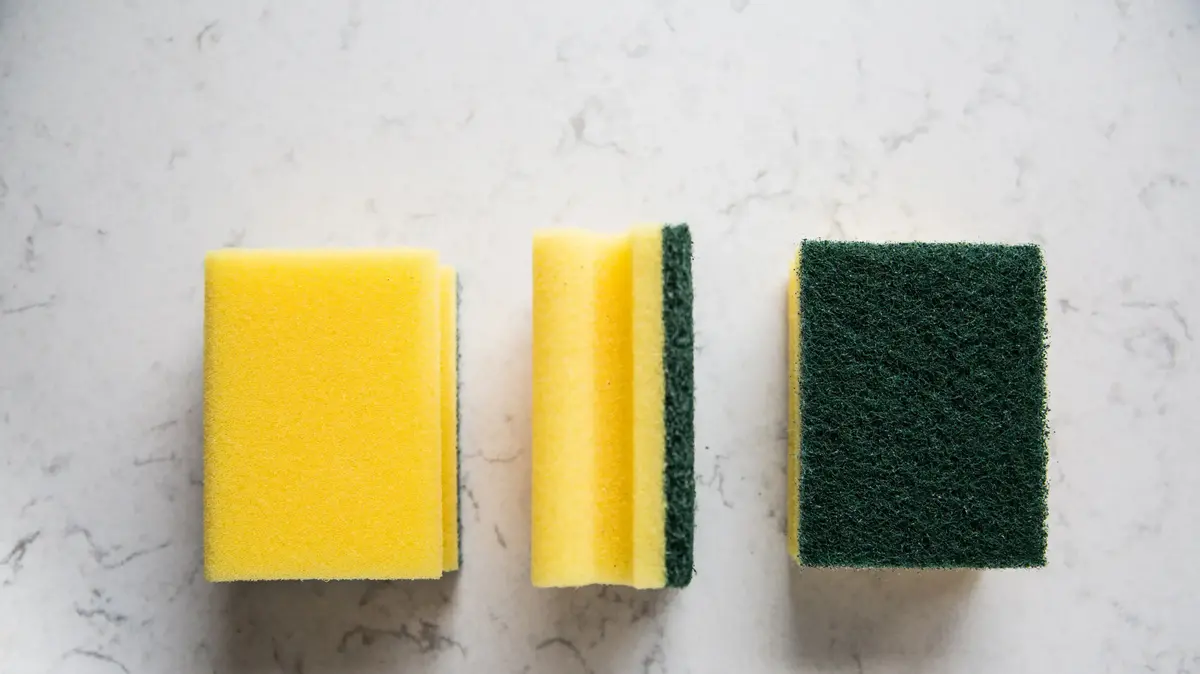Ugh: You would not believe how many bacteria are sitting on the sponge in your sink
This study completely took away from us the little urge we had to wash dishes.
And if you do not connect to what is written here, take the following sentence said by the lead researcher: "A single sponge can contain a higher number of bacteria than people on earth."
Thank you and sorry
Walla!
health
10/06/2022
Friday, 10 June 2022, 00:27
Share on Facebook
Share on WhatsApp
Share on Twitter
Share on Email
Share on general
Comments
Comments
Cleaning research is a routine thing, but when it comes to a product that everyone has in the house - it has already become more interesting.
A new study has found that kitchen sponges contain more bacteria than dishwashing brushes, a product that is less common in the country but may be a more hygienic way to clean dishes.
"Salmonella and other bacteria grow and survive better in sponges than in brushes. The reason is that sponges in daily use never dry out," said Trond Mortro, a research scientist at Nofima, a Norwegian food research institute, in a study published in the Journal of Applied Microbiology.
"A single sponge can contain a higher number of bacteria than people on Earth," he added.
More on Walla!
10 perfect methods for washing dishes
To the full article
While many bacteria are harmless, those such as salmonella can spread from the sponge to hands, kitchen surfaces and equipment, and can make people sick.
"The sponge is moist and accumulates food residues that are also food for bacteria, leading to rapid growth of bacteria," he said.
But what most surprised the researchers with their findings was that it did not really matter how people cleaned their sponge or how often.
"The way consumers used their sponges did not matter much about bacterial growth. It is very difficult for consumers to avoid bacterial growth as long as they do not change the sponge daily," Mortro said.
It will not help even if you change every week.
Dishwashing sponges (Photo: ShutterStock)
The study on tool cleaning brushes and brushes is based on a laboratory study published last year by the same team of researchers, who found that harmful bacteria survived better in sponges than in brushes.
Sponge vs. brush
In the current study, researchers collected kitchen sponges from 20 people living in Portugal and 35 brushes and 14 sponges from people living in Norway.
An earlier survey of 9,966 people by the research team found that sponges were common for cleaning kitchens in most European countries, with brushes being the dominant cleaning tool for washing dishes in only two countries - Norway and Denmark.
The sponges were all used for washing dishes - scrubbing pots and pans, and 19 of the 20 sponges from Portugal were used for this purpose five to six times a week or more often.
Of the brushes collected in Norway, 32 out of 35 were used five to six times a week or more.
The sponges collected in Norway were used less frequently.
More on Walla!
What is the most polluted item in your kitchen?
Bacteria are hiding in these areas of your kitchen - and you have no idea how dangerous it is
You probably did not clean this item at home, which is dangerous
Defeat the pain without fear: B-Cure laser in a trial operation at an unprecedented price
The results of the study found no pathogenic bacteria (causing the disease) in brushes or sponges.
However, overall bacterial levels were lower in used brushes than in sponges.
Similar types of non-pathogenic bacteria were found in both cleaning tools.
When the researchers added salmonella bacteria to the brushes and sponges, they found a significant decrease in the number of salmonella bacteria in the brushes that were allowed to dry overnight.
But there was no reduction for brushes stored in a plastic bag or for sponges - regardless of storage conditions.
Maybe you should switch to a tool brush? (Photo: screenshot, houzz.com)
The owners of the sponges and brushes shared for how long they usually used their sponge or brush, and how they kept their cleaning tools clean - rinsing with water, cleaning with soap and water, putting them in the dishwasher or bleaching.
However, none of these things made a tangible difference - something that surprised the researchers.
The main result of the study was that brushes, which dry out between uses, have a lower number of bacteria.
"Because the brush dries very quickly, harmful bacteria will die. Also, most brushes have a handle that prevents direct hand contact with potentially harmful bacteria, unlike sponges," he said, "I encourage consumers to try a brush the next time they need to replace their sponge."
Marcus Egert, a microbiologist at the University of Portwangen in Germany who conducted a similar study, told CNN he already uses brushes to wash his dishes.
Egert, who was not involved in this study, recommends that people who shy away from brushes use a new sponge every two to three weeks.
"Brushes are the better choice for cleaning dishes, from a hygienic point of view. This may have been predictable, but the authors of the study prove it in some nice experiments. However, based on my experience people like to use sponges."
health
news
Tags
Cleanliness
Hygiene
dishes
germs
Dishwashing

